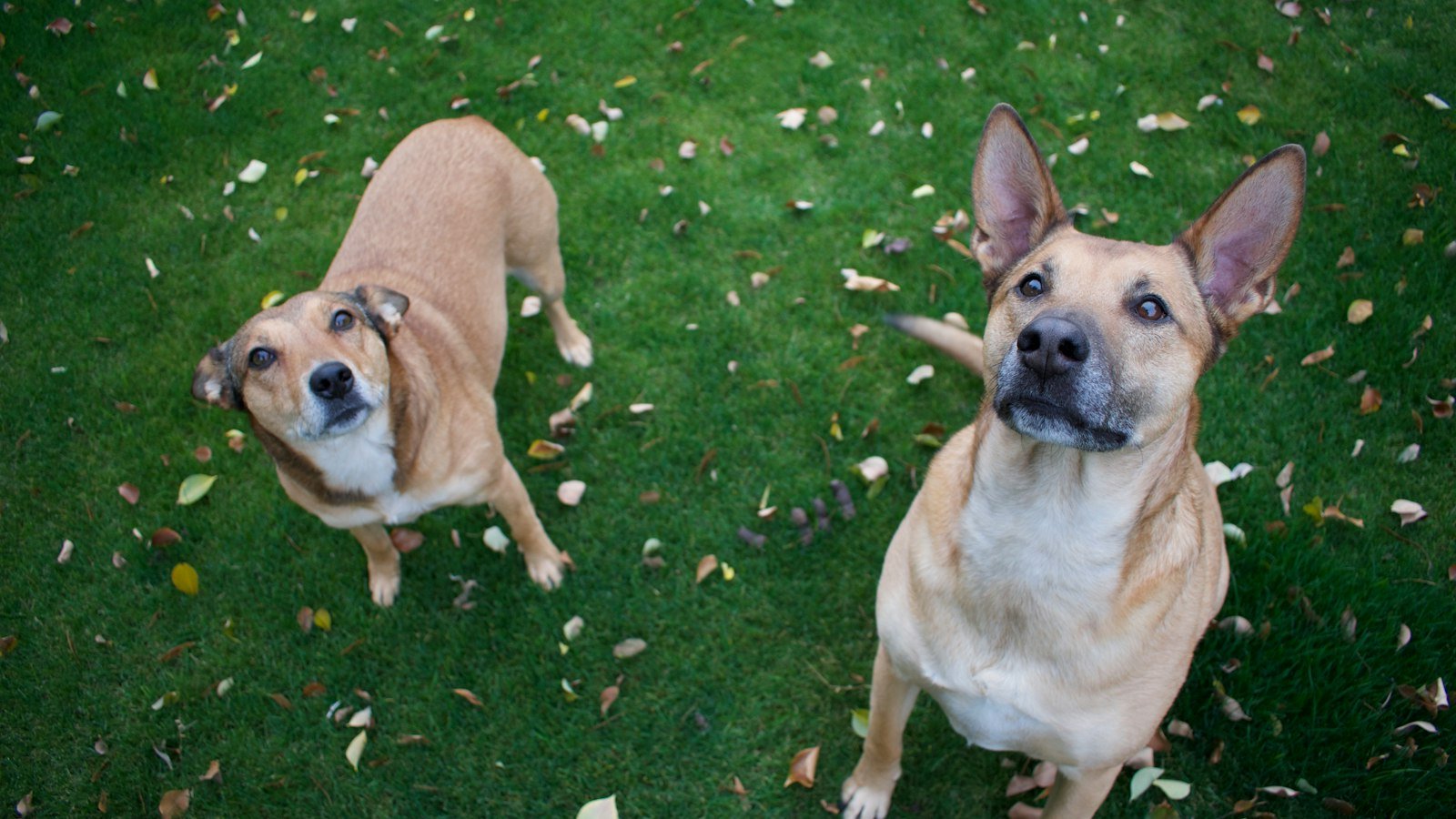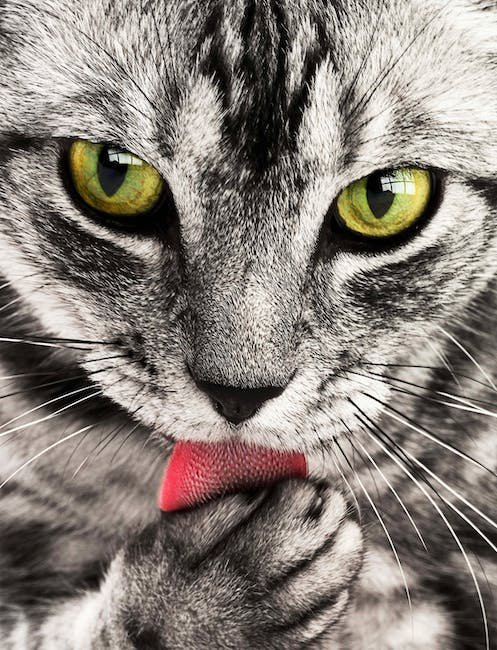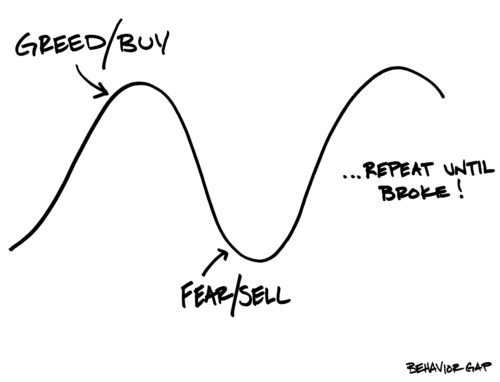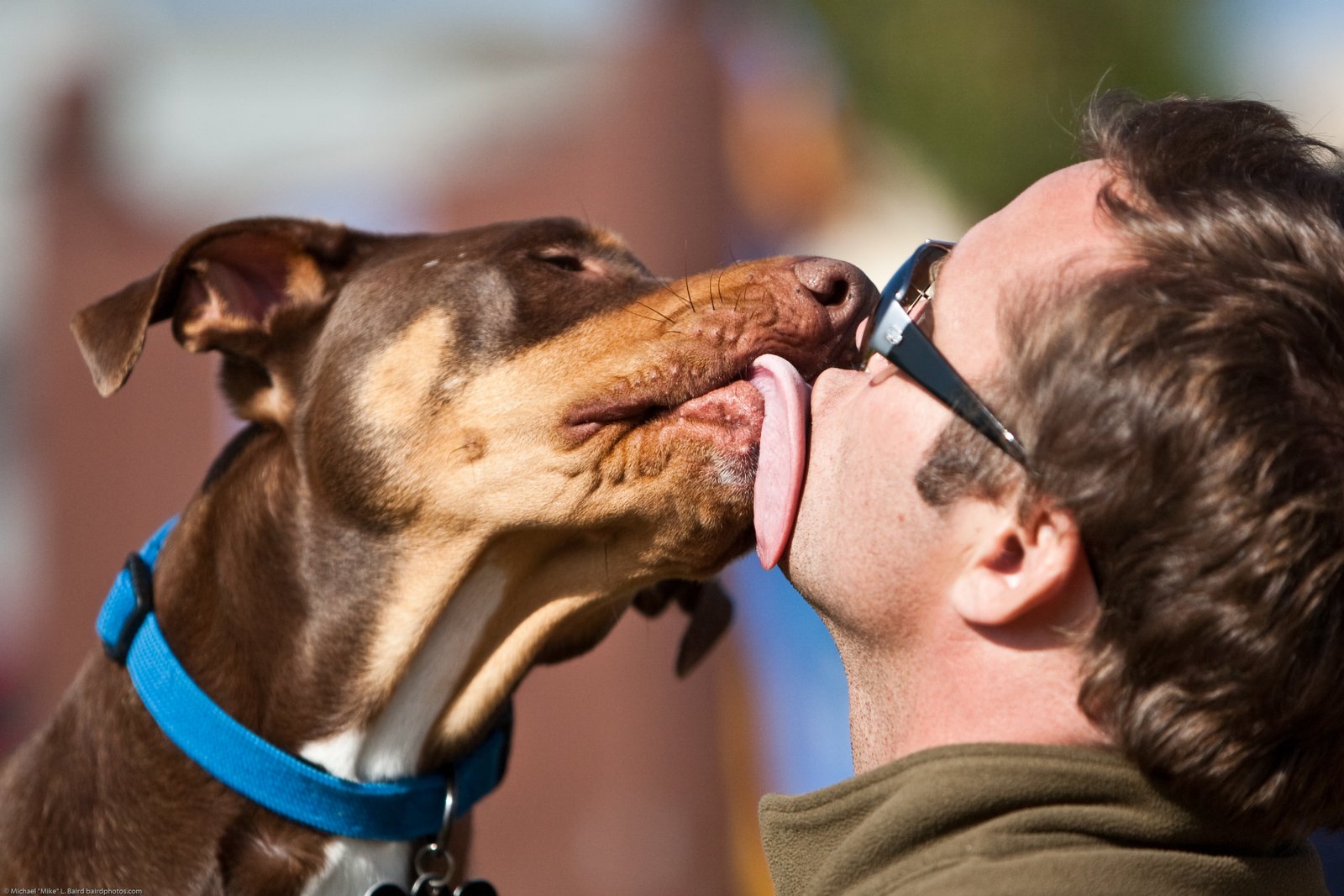Picture this: you’re sitting on the couch with your furry companion by your side, indulging in a moment of relaxation. Suddenly, you feel a wet, slurping sensation on your arm, followed by the incessant sound of licking. While a certain amount of affectionate slobbering is to be expected from our four-legged friends, excessive licking can often leave us wondering when it’s time to worry. In this article, we delve into the intriguing world of dog training for excessive licking, exploring the underlying causes, potential health risks, and steps to keep your pup’s lick-a-holic tendencies in check. Stay tuned as we unravel the mystery of your canine’s relentless tongue.
Table of Contents
- The Importance of Understanding Excessive Licking in Dogs
- Uncovering the Causes Behind Excessive Licking Behavior
- Recognizing the Potential Risks and Concerns
- Effective Strategies to Address Excessive Licking in Dogs
- Seeking Professional Guidance for Excessive Licking Issues
- Q&A
- In Summary

The Importance of Understanding Excessive Licking in Dogs
Excessive licking in dogs is a behavior that can often go unnoticed, but it is important for pet owners to be aware of its significance. While licking is a normal part of a dog’s grooming routine, excessive licking can indicate an underlying problem that requires attention. Here are a few reasons why understanding this behavior is crucial:
- Indication of discomfort or pain: Excessive licking can be a sign that your furry friend is experiencing discomfort or pain. Dogs often lick at specific areas that are bothering them, such as a sore spot or an irritated skin condition. Paying attention to these signs can help identify potential health issues.
- Behavioral or psychological issues: Sometimes excessive licking can be a manifestation of behavioral or psychological problems in dogs. Anxiety, stress, or even boredom can lead to this compulsive behavior. Recognizing and addressing these underlying issues can help improve your dog’s overall well-being.
- Possible allergies: Allergies are common in dogs and can manifest in various ways, including excessive licking. Dogs may lick their paws, legs, or other specific areas in an attempt to alleviate itching caused by allergies. Identifying and managing these allergies, such as through dietary changes or medication, can bring relief to your dog.
It is essential to closely observe your dog’s licking habits and consult with a veterinarian if you notice excessive or abnormal licking. Understanding the reasons behind this behavior can help you provide the necessary care and support to ensure your furry friend’s overall health and well-being.

Uncovering the Causes Behind Excessive Licking Behavior
Excessive licking behavior in animals can often leave pet owners puzzled and concerned. If your furry friend is constantly engaging in excessive licking, it’s important to understand the underlying causes behind this behavior to provide the necessary care and attention they may require.
Anxiety or stress: Just like humans, our pets can experience anxiety and stress. Excessive licking can be a self-soothing mechanism for them, serving as a way to calm themselves down. Common triggers for anxiety in pets include changes in routine, loud noises, or even separation anxiety when left alone for extended periods.
Allergies or skin irritations: Itchy skin due to allergies or irritations can lead to excessive licking in pets. Your furry friend might be trying to find relief by constantly licking the affected area. Allergens such as pollen, flea bites, certain foods, or even environmental factors can trigger allergic reactions, resulting in discomfort and excessive licking.
- Pain or discomfort: Licking can also be a response to pain or discomfort in pets, especially when it’s focused on a specific area. It could indicate an underlying injury, inflammation, or infection. If your pet’s licking behavior seems concentrated on one spot or limb, it may be worth consulting a veterinarian to rule out any potential medical issues.
- Compulsive behavior: In some cases, excessive licking can be a form of compulsive behavior. Just like humans suffering from obsessive-compulsive disorder (OCD), pets can exhibit repetitive behaviors that bring them temporary relief or satisfaction. This can include excessive licking, chewing, or grooming certain body parts.
Understanding the causes behind excessive licking behavior is crucial for providing proper care and support to our beloved pets. It is recommended to monitor your pet, maintain a healthy routine, and consult with a veterinarian if the excessive licking persists or becomes a cause for concern.

Recognizing the Potential Risks and Concerns
It is essential to be aware of the potential risks and concerns that may arise in various situations. By recognizing these factors, we can take proactive measures to mitigate their impact and ensure a safer and smoother experience.
Possible risks:
- Financial risks: It is important to consider the financial consequences of any decision or investment. Ensuring that proper budgeting and risk management strategies are in place can help minimize potential losses.
- Physical risks: In certain activities or environments, physical risks such as accidents or injury can arise. Being aware of safety protocols, wearing protective gear, and obtaining necessary training can significantly reduce these risks.
- Cybersecurity risks: With the increasing reliance on technology, it is crucial to understand the potential threats posed by cybercriminals. Implementing strong passwords, regularly updating security software, and being cautious while sharing personal information online can help safeguard against cyberattacks.
Concerns to address:
- Privacy concerns: In this age of information sharing, ensuring the protection of personal data should be a top priority. Familiarizing oneself with privacy policies, being mindful of what information is shared online, and using secure platforms can help mitigate potential privacy risks.
- Environmental concerns: Amidst growing concerns about climate change and sustainability, it is crucial to recognize and address environmental risks. Embracing eco-friendly practices, reducing waste, and supporting renewable energy initiatives can contribute to a healthier planet.
- Health concerns: Whether related to physical or mental health, it is important to prioritize self-care. Identifying and managing stress, maintaining a balanced lifestyle, and seeking professional help when needed are essential steps towards overall well-being.
By acknowledging and proactively addressing potential risks and concerns, we can navigate various situations more confidently and contribute to a safer and healthier environment for ourselves and those around us.

Effective Strategies to Address Excessive Licking in Dogs
Excessive licking in dogs can be a frustrating behavior for both pet owners and their furry companions. Not only can it lead to irritated skin and hot spots, but it can also be a sign of underlying health issues or anxiety. If your dog is persistently licking, try these effective strategies to address this behavior:
- Evaluate their diet: Ensure your dog’s diet is providing them with all the necessary nutrients. Sometimes, excessive licking can occur due to dietary deficiencies. Consider consulting with a veterinarian to determine if a change in their diet or the addition of supplements is needed.
- Provide mental stimulation: Boredom can often lead to excessive licking. Engage your dog in interactive games and provide them with plenty of toys to keep their minds occupied. Puzzle toys or treat dispensers can be particularly helpful in redirecting their focus and preventing excessive licking.
- Implement positive reinforcement training: Train your dog to redirect their licking behavior onto a specific object, such as a chew toy. Whenever they start licking themselves excessively, gently guide their attention towards the designated object and reward them with treats or praise when they engage with it instead.
- Address any underlying medical issues: If the excessive licking persists despite your best efforts, it’s crucial to rule out any potential underlying medical conditions. Schedule a vet visit to ensure your dog’s health is in check and explore any possible treatments or medications that may help alleviate the behavior.
By incorporating these effective strategies, you can help your furry friend overcome their excessive licking habits and promote their overall well-being. Remember to stay patient and consistent throughout the process, as breaking the habit may take time. Don’t hesitate to seek professional advice if needed, as every dog is unique and may require tailored approaches to address their specific needs.
Seeking Professional Guidance for Excessive Licking Issues
If your furry friend can’t seem to stop licking itself, it might be time to seek professional guidance for this excessive licking issue. While the occasional lick is normal for dogs and cats, excessive licking can indicate an underlying problem that needs attention. Here are some reasons why your pet may be licking excessively and how professional guidance can help:
- Medical conditions: Excessive licking can be a symptom of several medical conditions such as allergies, dermatitis, hot spots, or even pain. A veterinary professional can conduct a thorough examination and run tests to identify and treat any underlying medical issues causing the excessive licking.
- Behavioral issues: Sometimes, excessive licking can be a result of anxiety, stress, or compulsive behavior. With the help of an animal behaviorist or a professional trainer, you can determine the root cause of your pet’s excessive licking and work on strategies to modify their behavior.
- Dietary adjustments: A professional guidance can also help evaluate your pet’s diet, as certain ingredients or sensitivities may trigger excessive licking. They can recommend appropriate dietary adjustments or prescribe specialized food that can alleviate the issue.
Remember, excessive licking can not only be bothersome for your pet, but it can also lead to skin irritations, infections, or other complications. Seeking professional advice is key to uncovering the cause behind the excessive licking and finding an appropriate solution to ensure your pet’s well-being.
Q&A
What is considered excessive licking in dogs?
Excessive licking in dogs refers to a behavior where the dog licks themselves, objects, or even people excessively and persistently, without any apparent reason. It becomes a concern when it interferes with their daily activities or causes harm to the dog or others.
Why do dogs lick excessively?
Excessive licking in dogs may be caused by various factors, such as anxiety, boredom, allergies, or even pain. It can also be a learned behavior or a way for dogs to seek attention or communicate with their owners.
When should I be worried about my dog’s excessive licking?
You should be worried about your dog’s excessive licking when it becomes incessant and disrupts their daily routine, causes skin irritation or injury, or is accompanied by other concerning symptoms like hair loss, redness, or swelling. Consulting a veterinarian is recommended in such cases.
How can I determine if my dog’s excessive licking is due to a medical issue?
If your dog’s excessive licking is persistent and not influenced by environmental factors, it is advisable to consult a veterinarian. They can help rule out any underlying medical conditions that may be causing or contributing to the behavior through a thorough examination and, if necessary, additional tests.
Are there any effective methods to stop excessive licking in dogs?
The approach to stopping excessive licking in dogs may vary depending on the underlying cause. It is essential to address any medical issues, provide mental and physical stimulation, and use positive reinforcement techniques to redirect their behavior. Consulting a professional dog trainer or behaviorist can provide you with tailored strategies for your dog’s specific needs.
Can behavioral training alone resolve excessive licking in dogs?
Behavioral training can be effective in managing excessive licking behaviors, particularly when anxiety or boredom is the root cause. However, if the behavior is due to an underlying medical issue, it is crucial to address both the behavior and the medical condition together for optimal results. A comprehensive approach is often necessary to achieve long-term success.
In Summary
In conclusion, understanding the underlying reasons behind your dog’s excessive licking is crucial for their overall well-being and your peace of mind. While a certain level of licking is considered normal behavior, excessive licking can be a cause for concern and may necessitate further investigation by a veterinarian or professional dog trainer.
Remember, your furry friend’s incessant licking could be stemming from something as harmless as boredom or anxiety, or it could possibly indicate an underlying medical issue that requires immediate attention. By being observant and proactive, you can ensure that your beloved companion receives the care and support they need.
As responsible pet owners, it is important to strike a balance between addressing your dog’s excessive licking and fostering a harmonious bond. This can be achieved through a combination of behavioral training techniques, environmental enhancements, and seeking expert advice when needed.
Ultimately, your dog’s health and happiness should always be a top priority. So, don’t hesitate to seek professional guidance if you notice any persistent or concerning licking behaviors in your furry friend. Together, we can ensure that they lead a joyful, lick-free life, filled with endless tail wags and wet-nosed cuddles.
As an affiliate, my content may feature links to products I personally use and recommend. By taking action, like subscribing or making a purchase, you’ll be supporting my work and fueling my taco cravings at the same time. Win-win, right?
Want to read more? Check out our Affiliate Disclosure page.